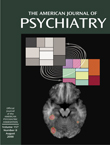Stressful Life Events and Previous Episodes in the Etiology of Major Depression in Women: An Evaluation of the “Kindling” Hypothesis
Abstract
OBJECTIVE: Although previous evidence has suggested that the etiologic role of stressful life events in major depression is reduced in recurrent versus first-onset cases, this question deserves reexamination because of potential methodological limitations of the previous studies. METHOD: Members of female-female twin pairs from a population-based registry (N=2,395), who were interviewed four times over a period of 9 years, formed a study group that contained 97,515 person-months and 1,380 onsets of major depression. Discrete-time survival, proportional hazards model, and piece-wise regression analyses were used to examine the interaction between life event exposure and number of previous depressive episodes in the prediction of episodes of major depression. RESULTS: For those with zero to nine previous depressive episodes, the depressogenic effect of stressful life events declined substantially with increasing episode number. However, the association between stressful life events and major depression was not substantially influenced by additional episodes. This pattern of results was robust to the addition of indices of event severity, measures of genetic risk, and restriction to independent stressful life events. The same pattern was also seen upon examining within-person changes in number of episodes. CONCLUSIONS: The association between previous number of depressive episodes and the pathogenic impact of stressful life events on major depression is likely causal and biphasic. Through approximately nine episodes, the association between stressful life event exposure and risk of major depression progressively declines but is largely unchanged with further episodes. These results are consistent with the kindling hypothesis but suggest a threshold at which the mind/brain is no longer additionally sensitized to the depressive state.



